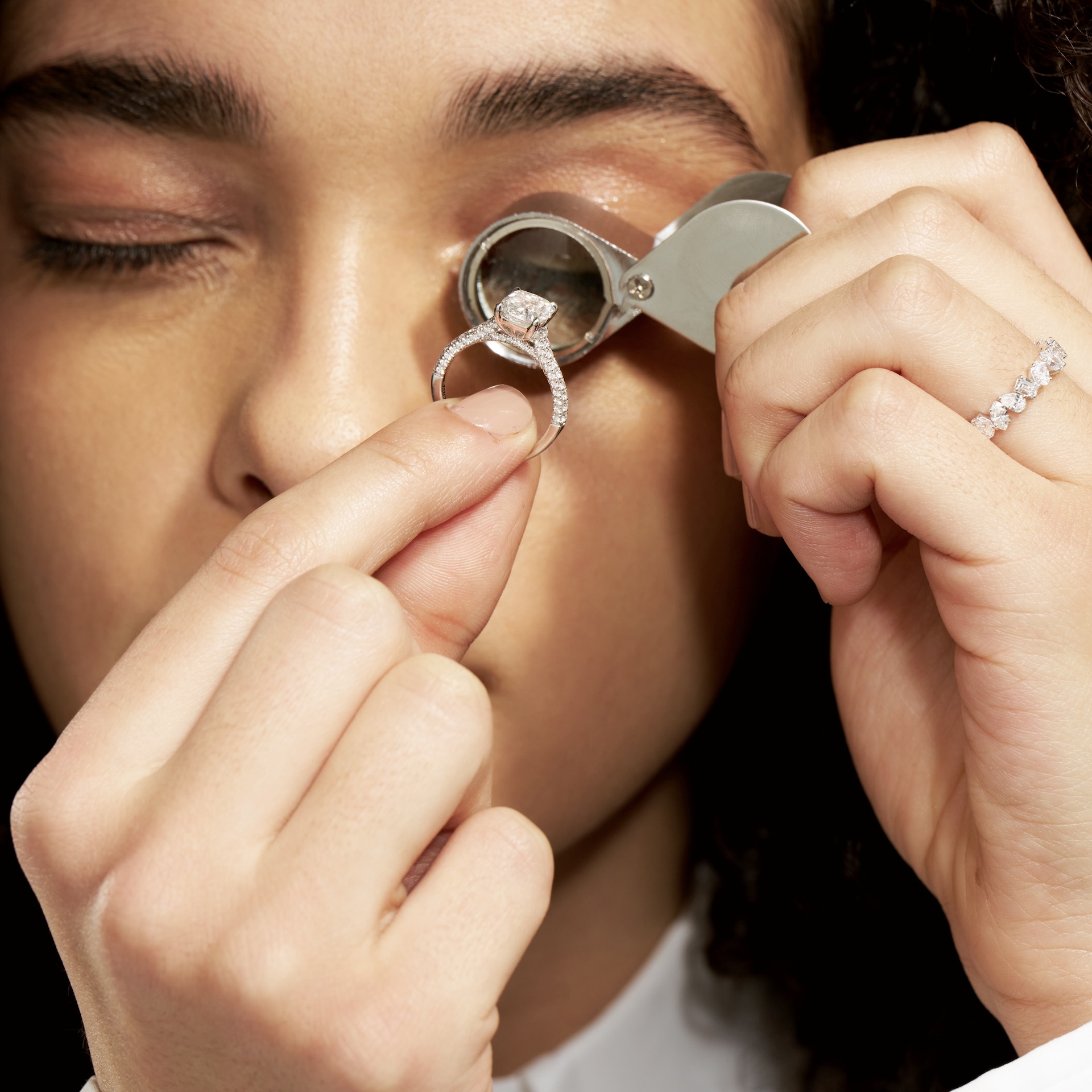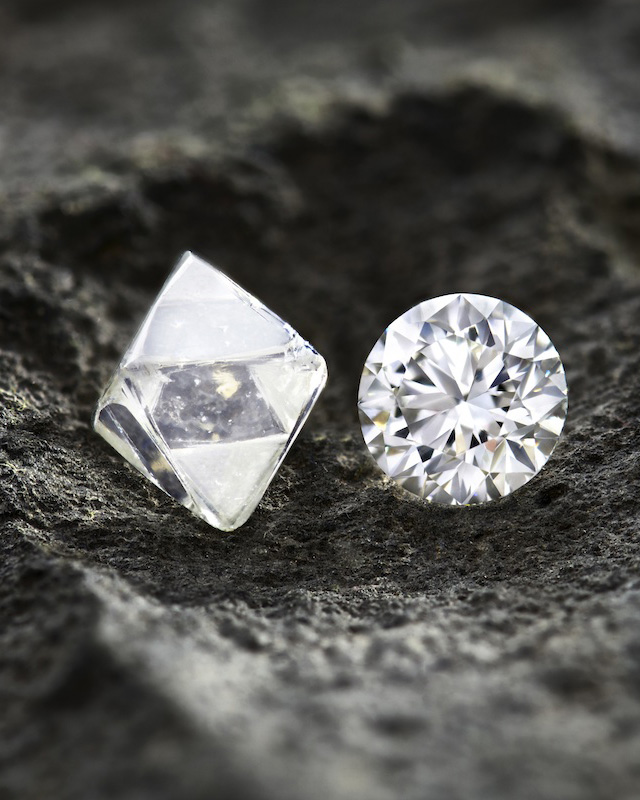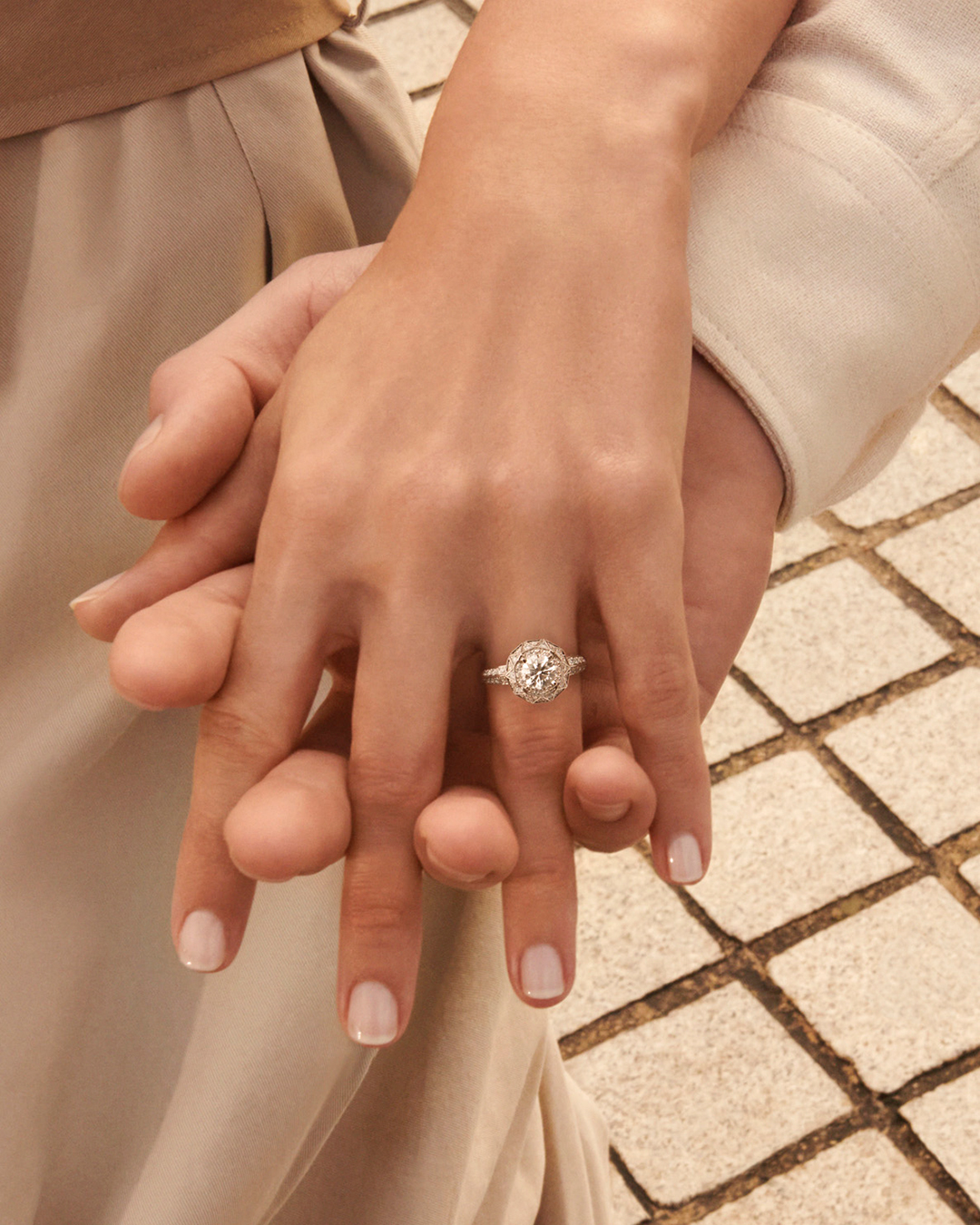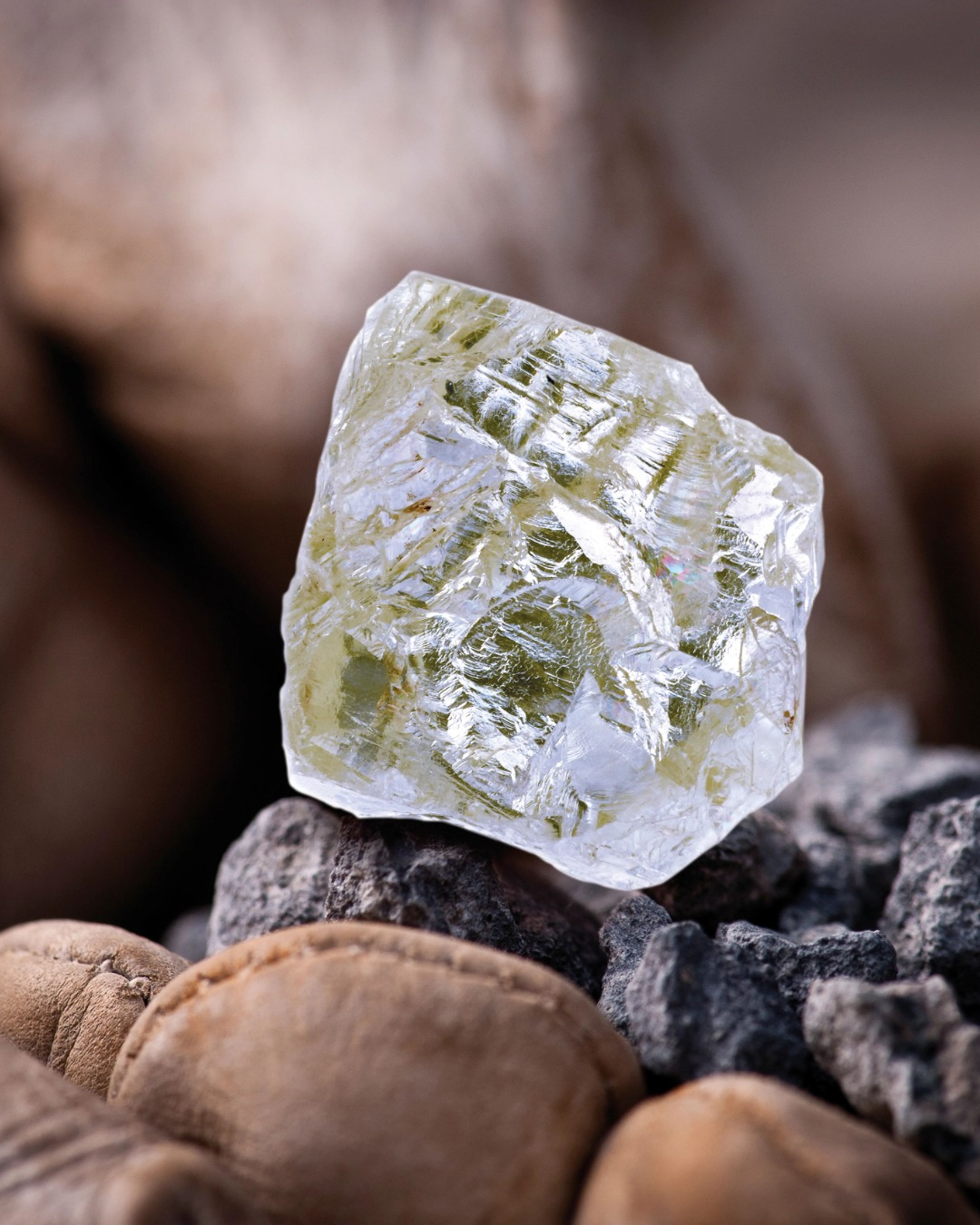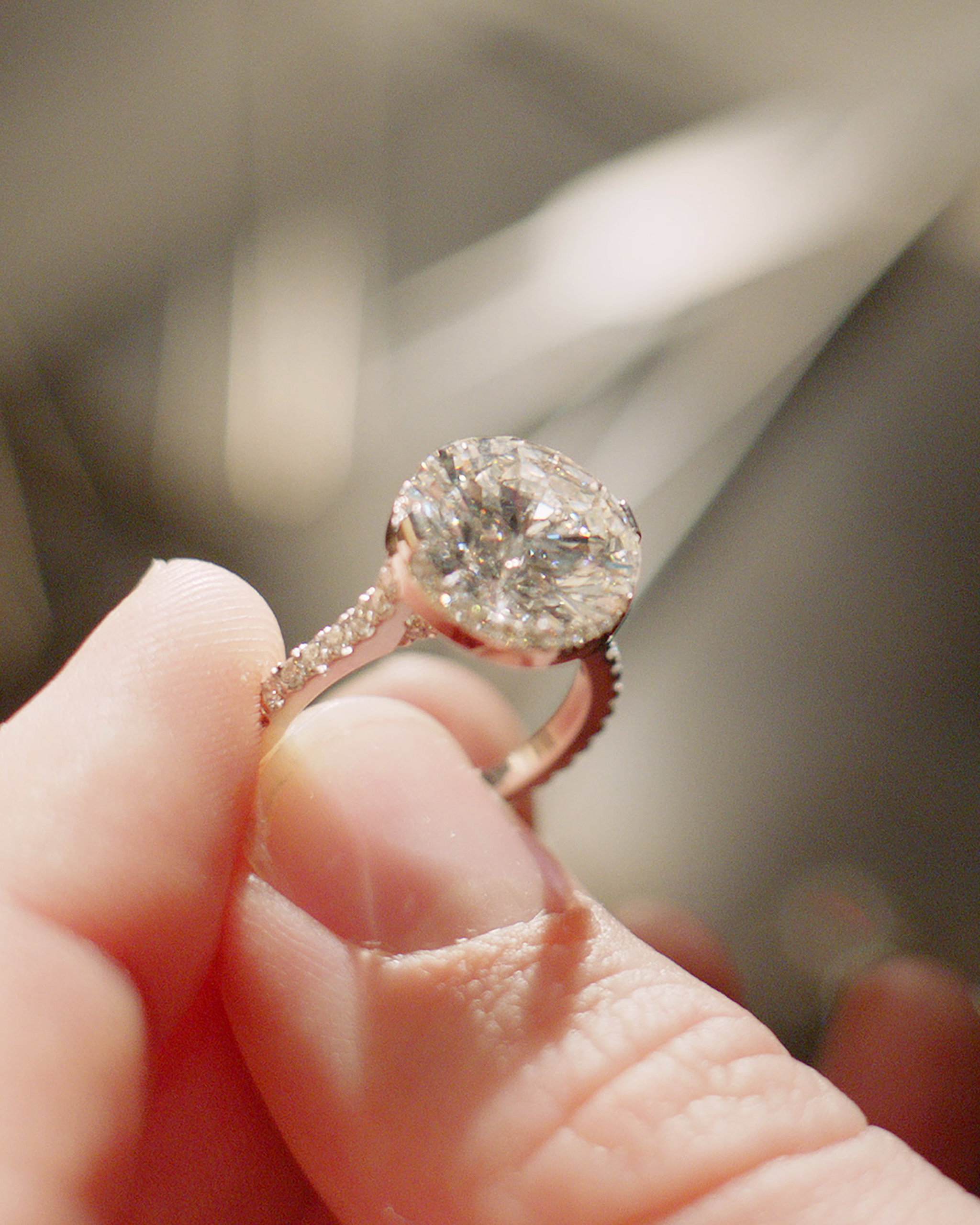
A diamond certification (also called a grading report) is more than just a piece of paper—it’s an expert, unbiased evaluation of a diamond’s quality. This grading report verifies characteristics like the 4Cs (cut, color, clarity, and carat weight), ensuring you know exactly what you’re purchasing. Certification provides transparency and confidence, helping you compare diamonds and make an informed decision.
What is Diamond Certification?
Diamond certification is a process in which a reputable gemological laboratory evaluates a diamond based on established standards. These laboratories, like the Gemological Institute of America (GIA)1, use precise grading systems to assess a diamond’s key characteristics known as the 4Cs—cut, color, clarity, and carat weight. The result is a certification report, often referred to as a grading report, which gives you a detailed description of the diamond’s qualities.
This document helps guarantee that the diamond you are purchasing has been evaluated by experts, ensuring transparency and authenticity. By choosing a certified diamond, you are investing in a gemstone that has been thoroughly assessed according to the industry’s most trusted standards.
Why Is Diamond Certification Important?
Diamond certification is essential because it provides you with the assurance that the diamond you are buying meets specific quality criteria. Without certification, it can be difficult to know the specifics of diamond’s quality as well as whether it is natural or laboratory grown (also known as lab grown or synthetic), as many diamonds may appear similar to the untrained eye. Certification offers peace of mind, especially when it comes to purchasing a valuable and long-term investment like a diamond.
With a certification from a well-known laboratory, you can be confident that the diamond has undergone rigorous testing by experienced gemologists. Additionally, certified diamonds are easier to insure and can be valuable for resale purposes, as they come with a trusted document outlining their key features.
What to Look for in a Diamond Certificate
A diamond certification is your key to understanding exactly what you’re buying, providing an expert assessment of a diamond’s quality and characteristics. A reputable certification will break down the 4Cs—cut, color, clarity, and carat weight—along with additional details like shape, dimensions, and any inclusions or blemishes that may affect the diamond’s beauty and value. It will also clarify whether the diamond is natural or lab-grown, ensuring transparency about its origin.
Inclusions and blemishes are natural imperfections that impact a diamond’s clarity. Inclusions, such as tiny air bubbles or mineral crystals, form inside the stone, while blemishes are surface imperfections. A quality certification will indicate the location and severity of these flaws, along with details on symmetry and polish, which reflect how well the facets are aligned and the overall craftsmanship of the stone. Another key factor is fluorescence, which describes how a diamond reacts to UV light, sometimes causing a subtle glow.
To help visualize these details, diamond certificates include a diagram mapping out inclusions and blemishes, giving buyers a clear understanding of the stone’s unique characteristics. This level of transparency and detail ensures you can confidently choose a diamond that meets your expectations.
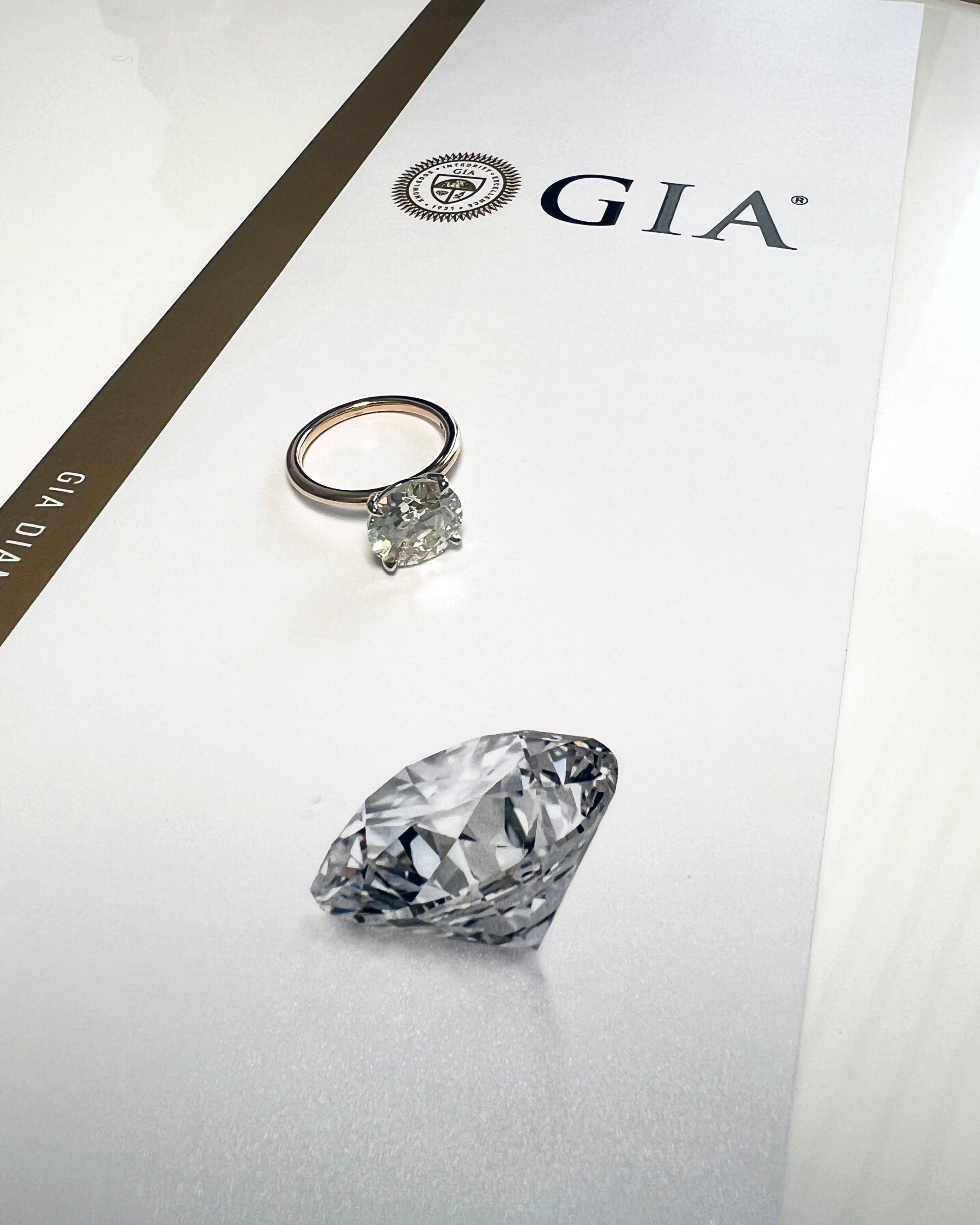

Are All Diamonds Certified?
No, not all diamonds are sold with certification. While most high-end jewelers offer certified diamonds from reputable labs like GIA1 or AGS2, some diamonds—particularly those from less-established sources—may not come with an official grading report. Certification is more common in luxury jewelry stores, where every stone’s quality and value are carefully verified.
If you want confidence in your diamond’s authenticity and grading, always request a certification. A certified diamond ensures transparency, verifying that your gem meets industry standards for cut, color, clarity, and carat weight. Before making your final purchase, ask for the diamond’s certification to guarantee you’re getting the quality and value you expect.
What a Diamond Certificate Does Not Do
It’s important to understand the limitations of diamond certification. A grading report does not assign monetary value or price (see below about diamond appraisals to learn more). It’s a quality report, not an appraisal or a tool for market valuation.
Additionally, a certificate does not guarantee beauty or personal preference. While a diamond may receive top grades on paper, factors like fire, brilliance, and overall appearance can still vary. A lower-graded diamond might speak more to your aesthetic or emotional connection—something no certificate can define.
Diamond Certification vs Diamond Appraisal
While diamond certification assesses a diamond’s quality based on a set of established grading standards, a diamond appraisal serves a different purpose. A diamond appraisal evaluates the diamond’s market value, which may be influenced by factors such as current market trends, conditions, and demand. An appraisal is particularly important for insurance purposes or estate planning, as it provides an estimated value of the diamond in today’s market.
While certification verifies the characteristics of a diamond, such as its clarity and color, an appraisal helps determine how much the diamond would be worth if sold or insured. It’s important to note that both the diamond certification and the appraisal should come from reputable and trustworthy sources. When purchasing a diamond, ensure that the certification and appraisal reports are from recognized institutions and professionals to get the most accurate and reliable information.
Diamond certification is an essential part of buying a diamond, as it guarantees the authenticity and quality of the gemstone. By carefully reviewing a diamond’s certification, you can ensure that the diamond meets the highest standards of cut, color, clarity, and carat weight. Certified diamonds offer transparency and peace of mind, allowing you to make a confident purchase. Whether you’re buying an engagement ring or a piece of fine jewelry, always look for diamonds with certification from trusted laboratories to ensure you’re investing in a valuable and timeless gemstone.
How to Spot a Trustworthy Certification
Not all diamond certifications are equal. Stick with reports from reputable, independent labs such as GIA1, AGS2, or GSI3. Be wary of in-house certifications or documents from unknown organizations—they may not adhere to strict industry standards and could overstate a diamond’s quality.
Before purchasing, verify the report number through the issuing lab’s website to ensure it matches the stone you’re considering. Many labs provide digital access to the full grading report for transparency.
Laser Inscription and Verification
Many certified diamonds, especially those graded by GIA1, feature a laser-inscribed report number on the diamond’s girdle—the outer edge of the stone. This tiny inscription links directly to the grading report, offering an added layer of security and verification. It’s often visible under magnification and can confirm that the diamond matches its certificate.
Digital vs. Physical Certificates
With more diamonds sold online and sustainability in mind, digital grading reports are increasingly common. Some jewelers offer only digital versions, while others provide both printed and digital copies. Always ask how and where to access your certificate, and ensure it’s easy to retrieve post-purchase.
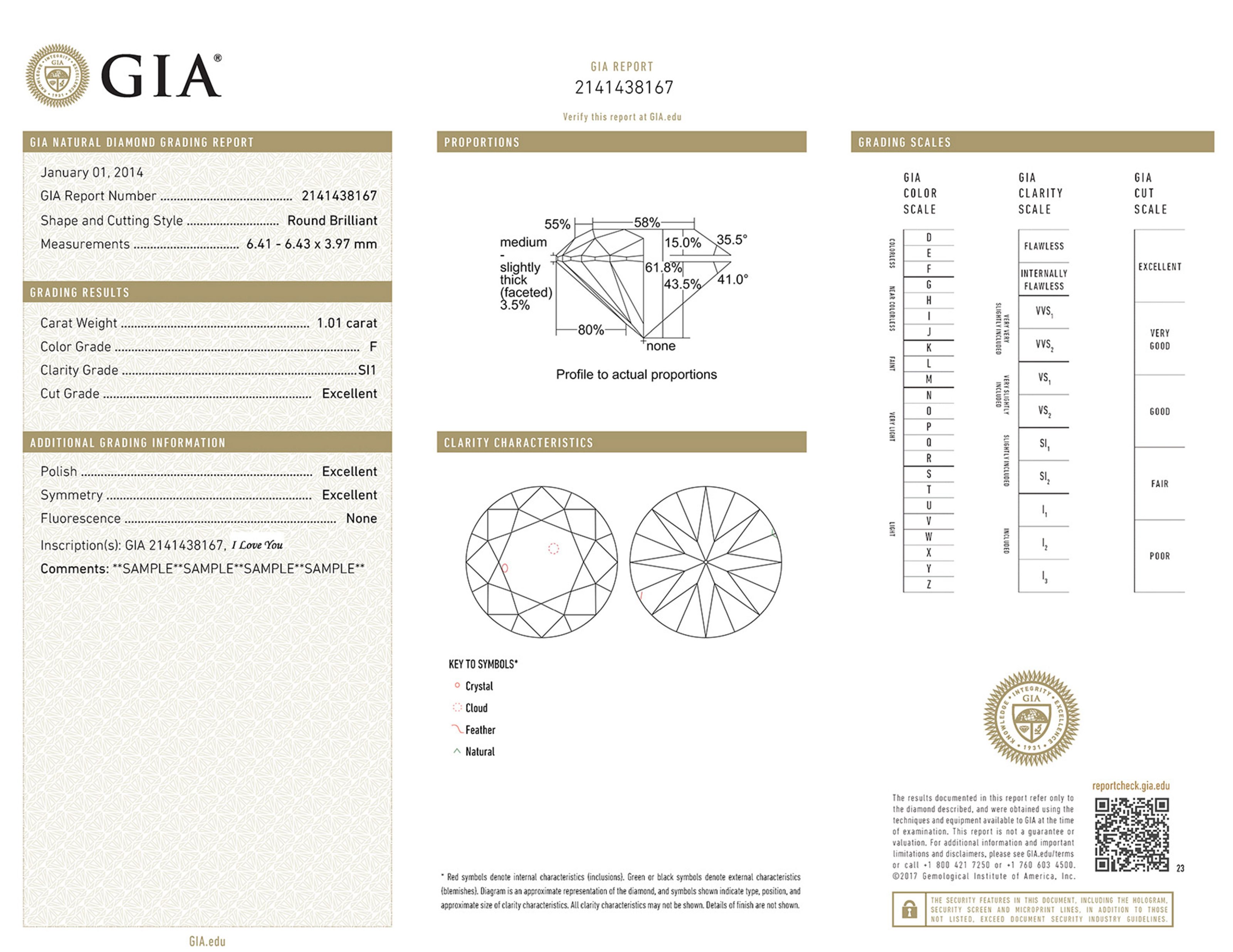
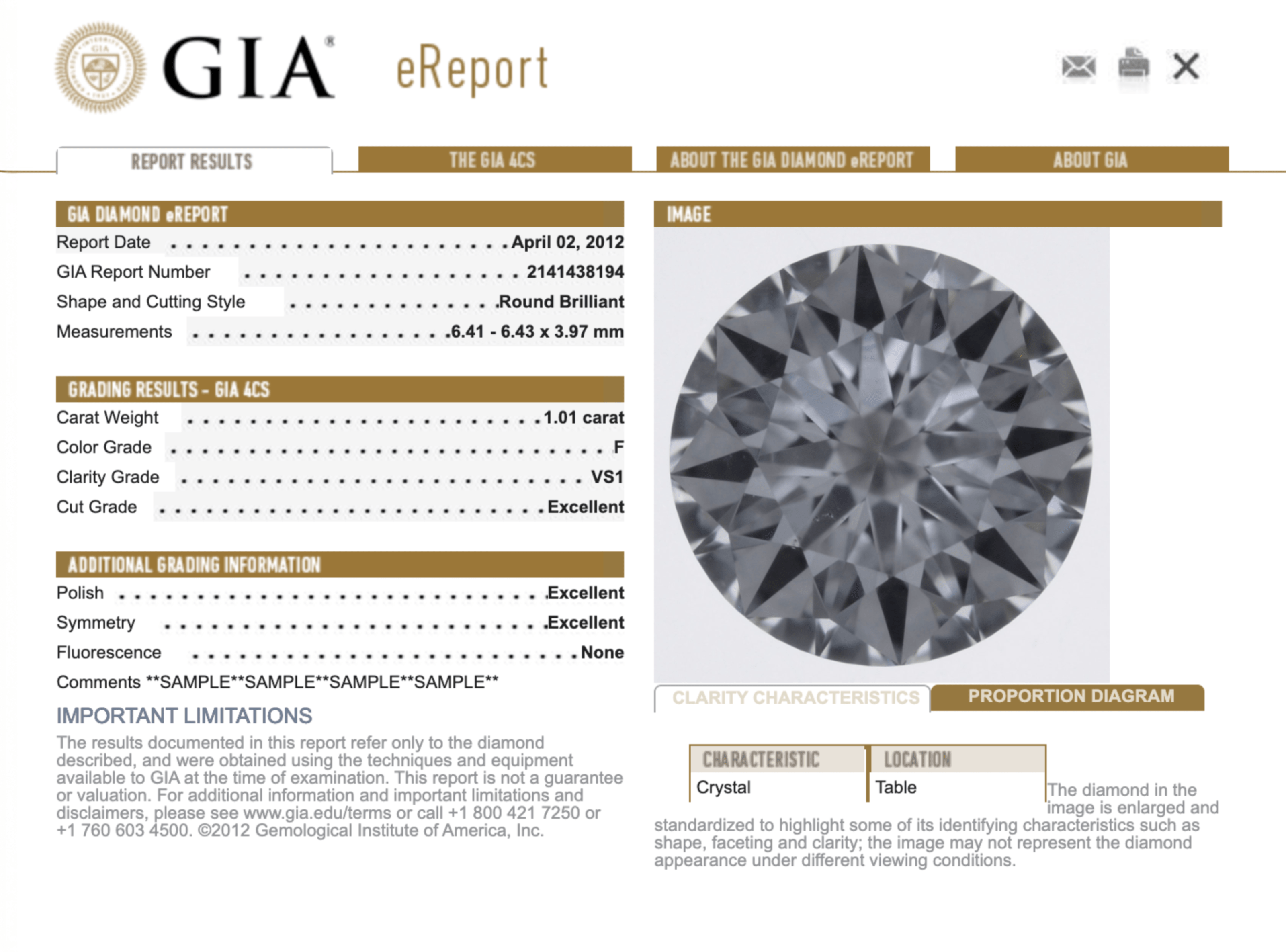
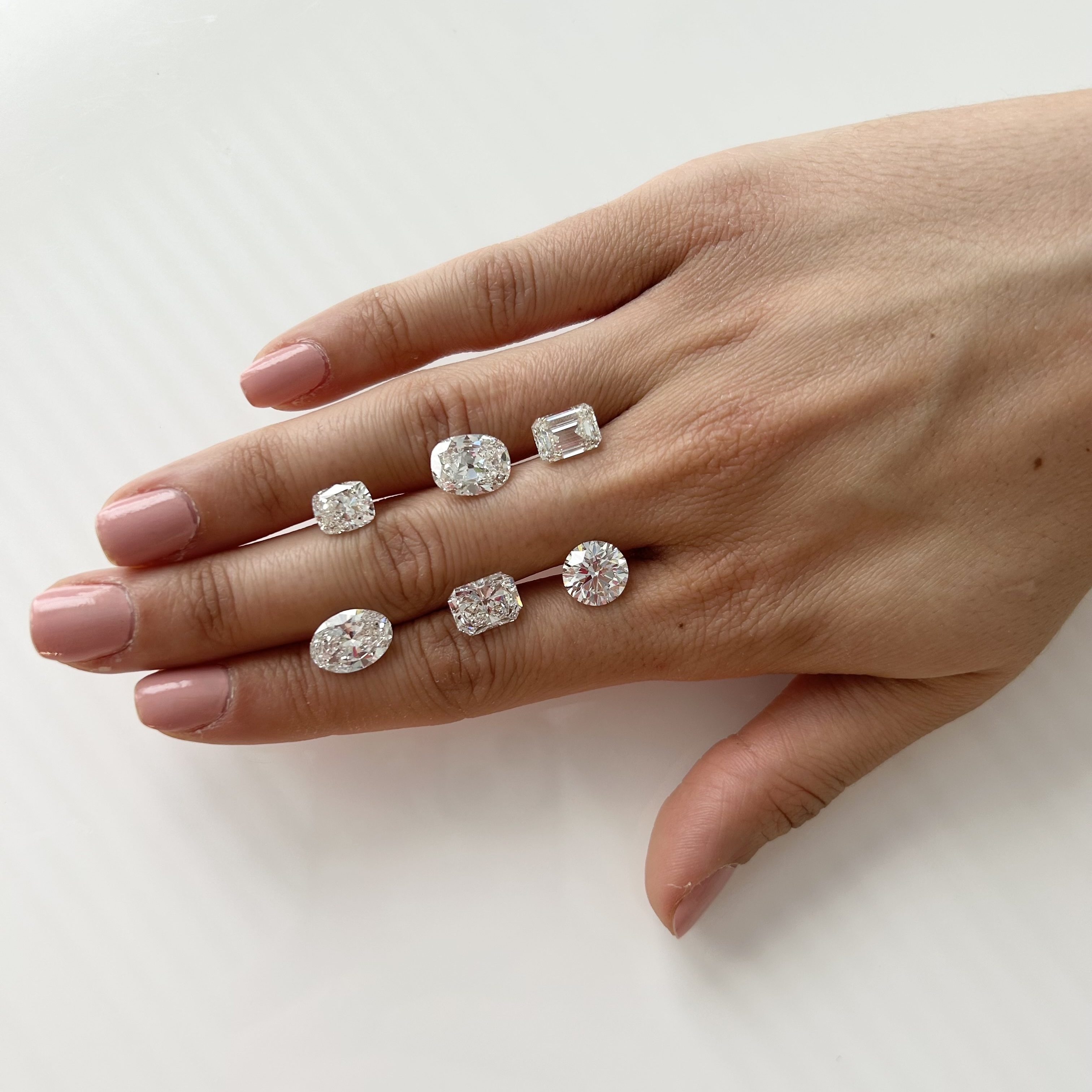
How Certification Fits Into the Shopping Experience
When shopping for a diamond—especially online or in a showroom—always ask to see the grading report before finalizing your decision. For online purchases, it should be readily available in the product listing or upon request. For in-person shopping, a trustworthy jeweler will walk you through the report and explain what the grades mean for that specific stone.
Diamond Tester: Final Thoughts
Diamond certification is a critical part of the buying process. It confirms the authenticity, quality, and characteristics of your diamond, giving you the confidence to choose a stone that aligns with your values and expectations. Whether you’re investing in a diamond engagement ring or an heirloom piece, a certified natural diamond ensures you’re getting what you paid for—with clarity and peace of mind.
SOURCES
1. Gemological Institute of America(GIA)
3. Gemological Science International (GSI)
About Natural Diamond Council
Natural Diamond Council (NDC) is the global authority on natural diamonds. As a not-for-profit organization, NDC is committed to advancing the integrity of the natural diamond industry and celebrating the unmatched beauty and value of natural diamond jewelry. NDC serves as the industry’s definitive voice, offering expert insight, trusted education, and unparalleled access to the world of real, rare, and responsibly sourced natural diamonds.
